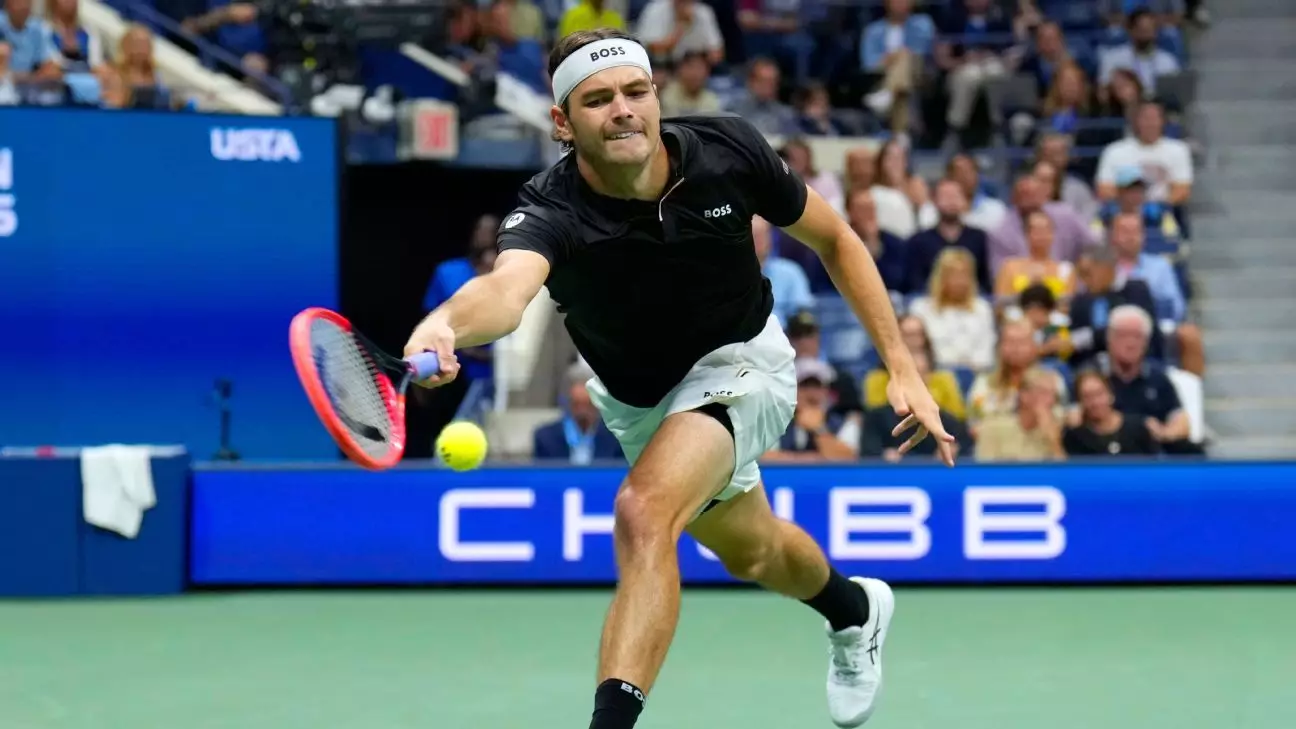In a groundbreaking decision, the International Tennis Federation (ITF) has declared that off-court coaching will be permitted starting January 1, 2025. This announcement, made during the ITF’s annual general meeting, has stirred significant debate among players, fans, and analysts. Advocates of the change argue it will make tennis “fairer” and potentially more engaging, as it alters the traditional one-on-one dynamic that characterizes the sport. However, detractors, including top players like Taylor Fritz and Denis Shapovalov, believe it undermines the unique mental and strategic elements that have long defined tennis.
Taylor Fritz, currently ranked World No. 6, did not hold back in expressing his discontent with the decision. With a clear frustration, he took to social media to implore the ITF to reconsider, stating, “Can we stop ruining the 1v1 mental/strategic aspect of the sport PLEASE.” His comments highlight a broader concern among players that the essence of tennis — a solitary battle of wits and skill — could be diluted by external influences. Similarly, Denis Shapovalov lamented the change, calling it “sad to see” and emphasizing the beauty of tennis lies in its individualistic nature. For many, the thought of having coaches providing guidance from the sidelines during critical match moments threatens to erode the sport’s authenticity.
On the flip side, ITF senior executive director Stuart Miller defended the decision by stating that player feedback indicated a desire for this evolution in coaching practices. According to Miller, many players view off-court coaching as a tool for personal development and an opportunity for coaches to enhance their roles. This perspective suggests that the introduction of off-court coaching may cater to a new generation of players and fans who seek a more dynamic viewing experience.
Indeed, the trial runs for off-court coaching during the 2023 Grand Slams and tours have provided data and insights that the ITF feels bolster its case. However, one must question whether these trials offered conclusive evidence that the change would ultimately benefit the sport or if they merely reflected a short-term novelty that could wear off over time.
As tennis stands at this crossroads, the implications of permitting off-court coaching extend beyond just altering match formats; they could redefine the very culture of the sport. The protection of the game’s core elements, such as player independence and mental fortitude, must be weighed against the perceived benefits of enhanced coaching support. In this ongoing debate, the tennis community must grapple with what it values most in the sport: the solitary struggle or the potential for collaborative input.
As anticipation builds toward 2025, it remains to be seen how this rule change will affect player performance, audience engagement, and the overall integrity of tennis. For now, the voices of dissent serve as a crucial reminder of the sport’s rich tradition, and the importance of ensuring that any evolution cultivates, rather than diminishes, the spirit of competition.

